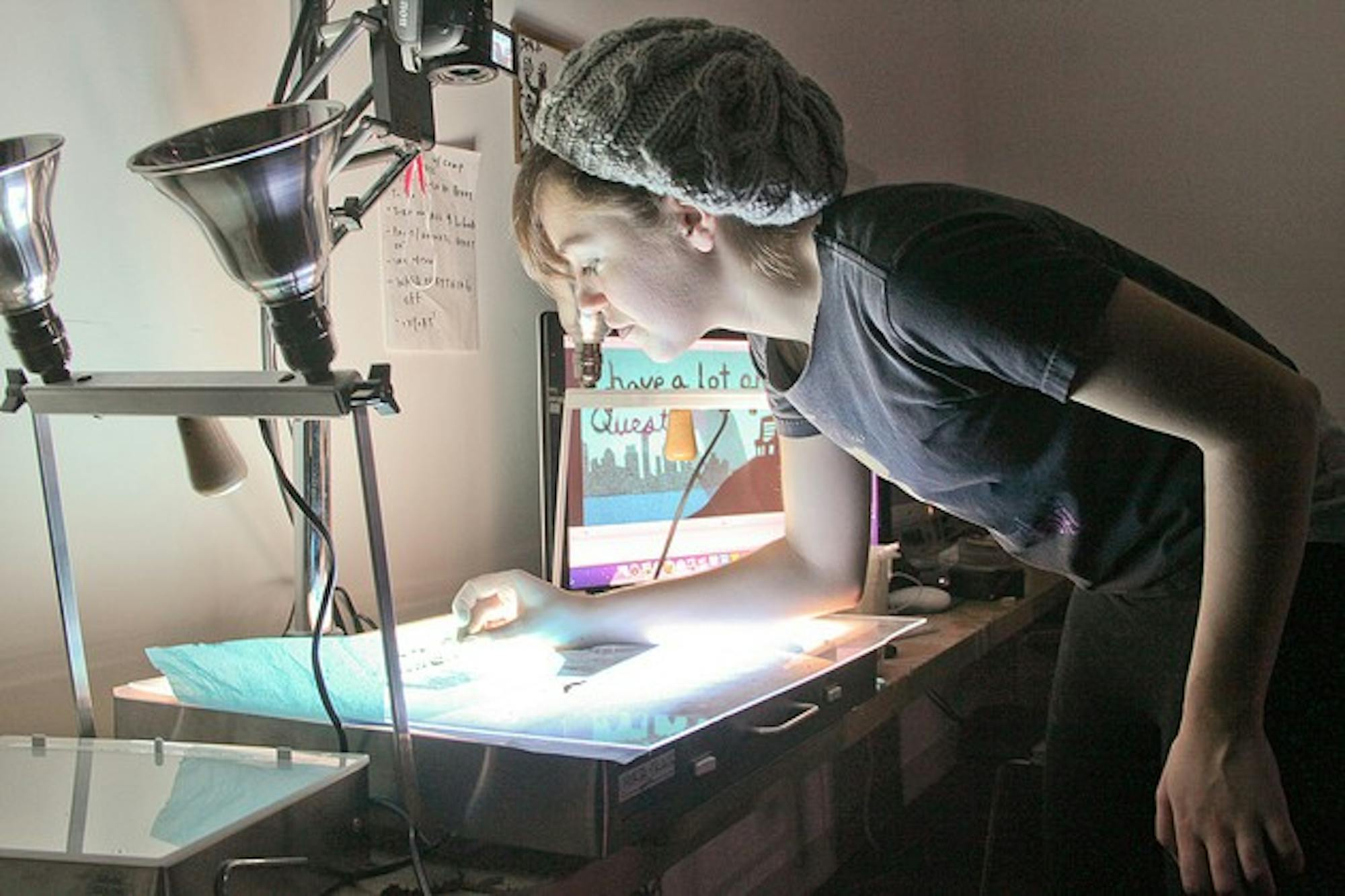Furlong is one of seven students completing their final projects for an introductory animation class taught by recently-appointed film professor Jodie Mack. The half-production, half-theory course which introduces students to different animation techniques will hold a screening of the students' final work on Thursday at 7 p.m. in the Loew Theater. The students began by learning hand-draw animation and completing a project in abstraction and motion, Mack said. They also experimented with rotoscoping a technique in which animators trace over live-action footage and animation with various materials, such as cut-out shapes, clay, sand and paint on glass.
"[The course] was an opportunity for us to introduce many of the techniques associated with animation, so that the students could just do all of these little exercises that are a sort of balance between the analog and digital world, and then make their own decisions as to what they wanted to work with for their final," Mack said. "And what's come out of that are a lot of projects that are quite hybrid."
An independent animator specializing in paper cutout and stop-motion animation, Mack began teaching at the College this fall. Her digital and 16-millimeter film works have appeared in theaters in Chicago, Los Angeles, New York and even on tour with OK Go after the band saw one of her music videos a venue that exemplifies the qualities of Mack's animations.
"The subjects of my work are mostly informed by the tension between popular art and abstract traditions in the 20th- and 21st-century contemporary art world," Mack said. "I consider my animation experimental animation."
In one of her digital videos produced for a presentation in Chicago, three-dimensional dinosaurs are shown moving through a zoetrope, a device that spins rapidly to give the illusion of animated movement. Another 30-second clip features multi-colored stars flashing on a parchment-like canvas.
Mack's innovative body of work helped land her a position in the film and media studies department. According to department chair Amy Lawrence, Mack was hired to replace David Ehrlich, who retired last year.
"She was just head and shoulders above everyone else," Lawrence said. "She was an outstanding candidate. Her films were inventive and funny, and very creative. She has loads of energy and enthusiasm and a lot of teaching experience in Chicago, and we were thrilled that she wanted to come."
Mack previously taught animation at the School of the Art Institute of Chicago, Columbia College Chicago, DePaul University and the University of Illinois at Chicago. She said she hopes that teaching at Dartmouth will expose students to experimental video and bridge the gap between the film and media studies, studio art and computer science departments.
"I'm here to bring an artisanal point of view to the film major process," Mack added. "An independent, total filmmaking perspective on media, so I want to teach students to make films and videos from the ground up without crews or sound guys or lighting teams. I come from a school where you make your movies all yourself."
Judging from the large time commitment required by the course on average, students said they spent more than 20 hours a week outside of class working in the studio Mack has succeeded in helping students view filmmaking as a craft of dedication. The animation studio, which was originally housed in the now demolished Clement Hall, relocated to its new state-of-the-art location at Four Currier Place.
Mack will teach a course in the Winter dealing with found footage and collage animation, as well as a course in the spring working with 16-millimeter film. In the long run, Mack hopes to establish a group the Society for Creative Media Making to hold workshops and screenings for artists outside the classroom, she said.
"A lot of the time, when we think about media, we think of commercial work, but that's not so much my saying," Mack said. "I'm into artist-made work, so I'm just here to point out to students that media isn't just for television or for the mass populace."




